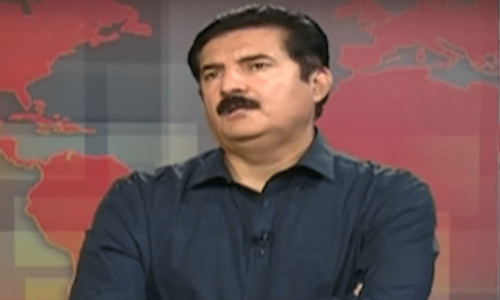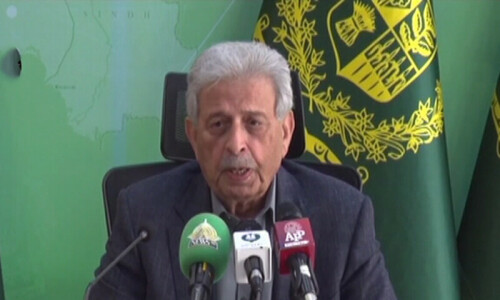The State Bank of Pakistan (SBP) Act 2021 leaves room for the government to manipulate the exchange rate by exerting undue influence on top SBP officials.
According to Riaz Riazuddin, a lifelong central banker who served as deputy governor as well as acting governor until five years ago, the recent legislation doesn’t fully address the issue of the exchange rate manipulation at the behest of the Ministry of Finance for short-term political gains.
“The law has a major flaw. It should’ve given the oversight of the exchange rate to the Monetary Policy Committee (MPC), which is an independent body with outside economists,” he told Dawn in an interview.
Passed on the insistence of the International Monetary Fund (IMF) as one of the loan conditions, the latest piece of legislation aims to give the operational and financial autonomy to the SBP.
SBP governor had full authority to formulate exchange rate policy under old legislation
In the last PML-N government (2013-18), the Ministry of Finance under Ishaq Dar injected up to $7 billion into the currency market to keep the rupee overvalued against the dollar for many years. The policy burned the country’s reserves, which largely consisted of borrowed funds, and resulted in a full-blown balance-of-payments crisis by 2018.
Before the latest amendments to the SBP law, the governor had the full authority to formulate the exchange rate policy. Under the amended law, a newly formed Executive Committee consisting of the governor and deputy governors will oversee the exchange rate policy.
“We’ve had governors in the past who didn’t exercise their power to adjust the exchange rate in time. That’s why it’s necessary that this responsibility should rest with an independent committee,” said Mr Riazuddin who drew the unreserved ire of Mr Dar for letting the rupee slide around 3pc against the dollar in a single day during his two-month stint as SBP’s acting governor in 2017.
Mr Dar was livid. He immediately removed Mr Riazuddin, a Boston University–trained economist, and appointed a career bureaucrat as SBP governor.
“This flaw alone can become a hurdle in the SBP’s effort to achieve the inflation target. I’m surprised why the IMF didn’t insist [on improving the oversight mechanism]. If the rupee becomes overvalued for whatever reason, a balance-of-payments crisis — followed by a sudden depreciation and a sharp rise in inflation — will wreck the economy,” he said.
Mr Riazuddin said the MPC has independent economists as members who can be expected to resist pressure from government officials. The committee has no say in exchange rate management under the existing law.
“The MPC should have the authority to discuss the matter and direct the SBP to bring the rupee to a better level if and when it gets overvalued,” he said.
The issue of exchange rate has assumed greater importance after the PMLN-led coalition came to power last month. Despite having no cabinet role in the coalition government, Mr Dar has been issuing public statements from abroad about what he believes is the optimum level of the exchange rate.
Finance Minister Miftah Ismail didn’t respond to a request for comment.
“I think a return to the old ways of exchange rate manipulation is improbable since we’ve already amended the law and made a formal transition to the new system,” said Samiullah Tariq, head of research at Pakistan Kuwait Investment Company.
As for the longstanding obsession of Mr Dar with fixing the exchange rate at an arbitrary level, Mr Tariq said recent public statements of Mr Dar carry some “sentimental value” for the public. “He kept the rate at 105 for many years. People ask him if the new government would do anything to bring down the dollar rate. What he says, however, has no bearing on the actual demand and supply of dollars and the resulting exchange rate,” he said.
According to Uzair Younus, director of the Pakistan Initiative at the Atlantic Council’s South Asia Centre, the government has “numerous ways to coax the SBP” into doing what it wants. “This is why it’s important to have a credible governor in place.”
“If they revert to Daronomics with [respect to the] exchange rate, we’ll see an increase in the REER,” he said while referring to the real effective exchange rate that represents the weighted average of a country’s currency in relation to a basket of other major currencies.
The REER was 96.8 in March, according to the SBP. A rising REER value will mean exports are getting expensive and imports are turning cheaper. This will make international trade less competitive for Pakistan.
A rising REER “will be the signal to watch for,” said Mr Younus.
Published in Dawn, May 8th, 2022

















































